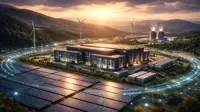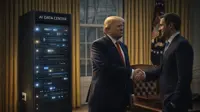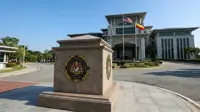Missile technology export case may cast shadow on Indo-US nuclear deal
04 Apr 2007
Washington, USA: According to unnamed American administration official, the case of two Indian nationals arrested on charges of illegally exporting US missile technology to India could cast a shadow over the Indo-US civil nuclear deal. A report in The Washington Times quoted an unnamed Bush administration official as saying the case could undermine congressional support for the deal.
The deal envisages resumption of the sale of non-military nuclear power goods and non-military space launch equipment to India.
A State Department spokesman however hastened to clarify that the United States and India have 'strong' ties and 'this will not change' because of the missile technology case.
'This is a law-enforcement matter that began before our efforts to conclude a civilian nuclear cooperation agreement,' the spokesman said. 'The arrests of these individuals are not connected to our efforts to conclude an agreement.'
The non-proliferation lobby in the US, which has found itself effectively sidelined so far with a determined US administration steamrolling the deal through its various stages in the US Congress, has now jumped into the fray. Henry Sokolski, director of the Non-proliferation Policy Education Centre in Arlington, said the arrests 'raise questions about whether or not we can actually trust the Indian government when it says it's not going to divert high technology we're going to be giving them in the nuclear and missile areas for illicit weapons activity.'
Two Indian businessmen, Parthasarathy Sudarshan, 46, and Mythili Gopal, 36, both of Simpsonville, South Carolina, were arrested Mar 23. According to the grand jury indictment, now made public, the two conspired with at least two other Indians to circumvent the US Arms Export Control Act between 2002 and 2006 by purchasing US electronic components used in missiles, sending them to Singapore and then re-exporting them secretly to India. Parthasarathy Sudarshan, meanwhile has pleaded not guilty to the charges.
The items included Static Random Access Memory computer chips that are designed to withstand extreme temperature changes and have applications for missile guidance systems.
The indictment states that these chips were shipped without a required export license to the Vikram Sarabhai Space Centre (VSSC), an Indian government organization that is involved with space related activities. Other related equipment was described as high-technology capacitors, semiconductors and resistors-all with missile applications.
Illegally exported US components, including the i960 microprocessor, also were sent to India to develop its Tejas light combat aircraft, according to the indictment.
It also states that Sudarshan and Gopal met with an Indian embassy official in arranging the illicit purchase of 500 of the i960 microprocessors.
According to the indictment the defendants provided false end-user documents to hide the VSSC as the purchaser.
The goal of the illegal exports was 'to supply government of India enterprises on the entity list with critical electronic components needed in the production of missiles and missile launch vehicles,' the indictment said.
The entity list is a list of companies and foreign government entities that are restricted from buying US military goods.



















